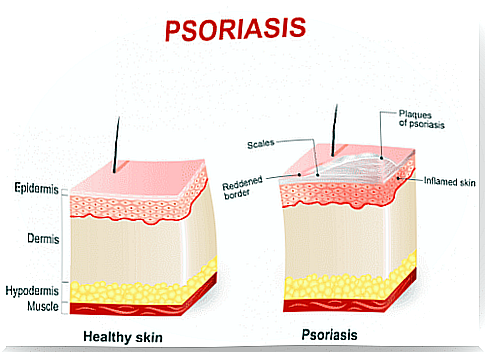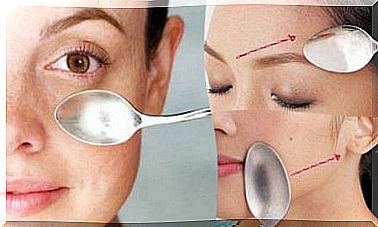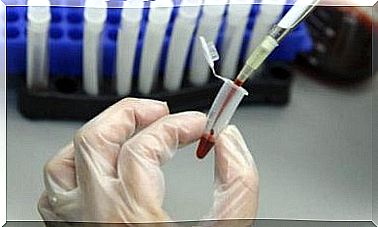Acitretin – Properties, Indications And Uses

Acitretin is a medicine that belongs to the group of retinoids or derivatives of vitamin A. Thus, it is a remedy for problems that thickens the skin and gives it a scaly appearance.
This medicine works by inhibiting cell growth and keratinization of the skin. Keratinization is a process by which skin cells thicken due to the deposition of proteins on them.
What is Acitretin for?

Acitretin is used to treat serious and widespread skin diseases. Psoriasis is one of these general conditions. It is also useful in the treatment of ichthyosis. This is a skin condition in which keratin is deposited in the cells and hardens them. This is similar to nails and hair.
You should only take this medicine under medical supervision, preferably from a dermatologist. This is because these specialists have more experience in treating systemic retinoids.
Administration routes
You should take Acitretin with food or milk. In terms of dose, it varies from patient to patient. Always follow the guidelines prescribed by your doctor.
The usual starting dose for adults and the elderly is 25 mg or 30 mg, once a day. After 2-4 weeks, however, it is possible for your doctor to change the dose depending on the effectiveness and its effect on you.
In any case, the maximum dose is 75 mg per day. day, and the treatment lasts a maximum of three months. However, it may take longer if the specialist deems it necessary.
Do not try to compensate for your daily dose if you forget to take it. But take it as soon as possible. However, you should not take it if there is a short time between the one you missed and the next one. You should consult your doctor if you want to discontinue treatment. Never do it on your own.
Experience: Psoriasis in children: How to deal with it
Side effects

Like all medicines, Acitretin can cause side effects, although not everybody gets them. They are usually dose related. The higher the daily dose, the greater the risk.
Most of the side effects appear when you start treatment and go away if you change or discontinue the dose.
Dry skin, mucous membranes and lips are among the most common side effects. In addition, there may be other side effects, such as:
- Changes in hair growth rate and structure
- Inflammation of the gums and mucous membranes of the mouth
- Skin blisters and cracks
- Color changes in your hair and your skin
- Visual disorders such as dry eyes, blurred vision, poor night vision and contact lens intolerance
In other cases, in addition to the dryness of mucous membranes of the skin and nose, the skin peels. The scaling can be specifically seen in the palms and on your feet.
A small percentage of patients experienced side effects such as nosebleeds. They also got a scaly appearance and their healthy skin was diluted, with increased sensitivity.
When a long-term treatment with acitretin is over, there may be bone changes, such as bone thinning or reduction in bone density – osteoporosis.
When should Acitretin not be used?
You should not use Acitretin in the following situations:
- If you are pregnant or want to become pregnant during treatment or for the next 3 years
- If you have liver, kidney or ischemic insufficiency
- You are allergic to Acitretin or retinol
- If you are undergoing tetracycline treatment
Also read: Five ways to keep psoriasis at bay
You need to know and remember that Acitretin is very teratogenic. That is, it can trigger fetal malformations in pregnant women if they undergo treatment with it. Typical Acitretin malformations include:
- Damage to the central nervous system
- Heart problems and dilated blood vessels
- Malformation of the skull, face and skeleton
- Problems with the thymus gland
The proportion of malformations is high, even when a pregnant woman only takes it for a short period of time. It can also happen if pregnancy occurs within 3 years after the end of treatment.
Conclusion
You should always use Acitretin under medical supervision and be especially careful if you are a woman. Do not use this medicine if you are pregnant or planning to become pregnant within the next 3 years. As mentioned above, this drug leads to major malformations of fetuses.









